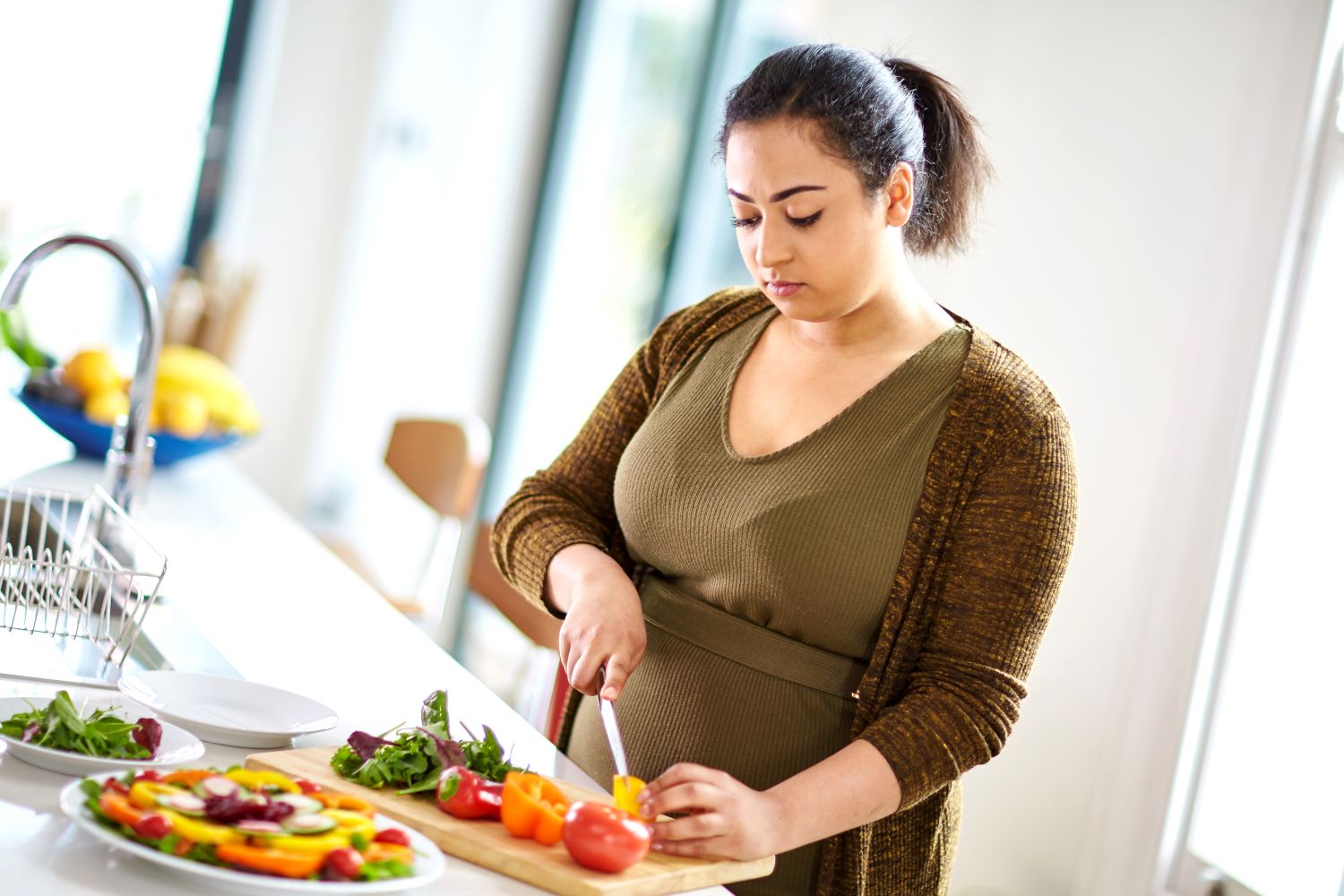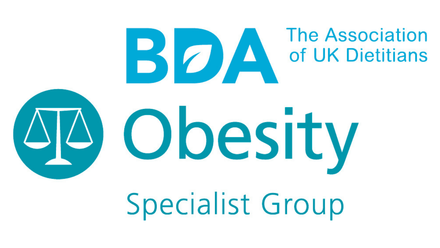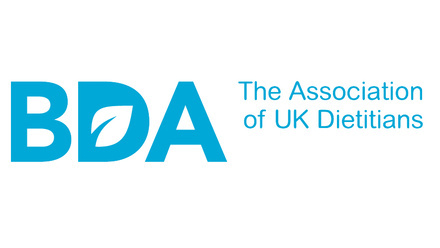How do we as dietitians, dietetic assistants and students, need to change to reduce weight stigma and be inclusive with our language?
The British Dietetic Association has for just over a year been proud to have published guidelines which aim to reduce weight stigma from all its published material and communications1 by ensuring that non-stigmatising language and imagery with respect to weight and body size are used.
Leading on from this, the association’s journal, the Journal of Human Nutrition and Dietetics (JHND), is exploring how these guidelines can be incorporated within an academic journal.2 As we are spending some time considering stigma and inequalities in dietetics and how they manifest in academic writing, it is essential that we consider how as dietitians we can practise in the most inclusive way possible. While we are aware that stigma can be present in many forms, for the purpose of this article we are focusing on stigma associated with body weight/size.

Firstly, before being able to consider issues of inclusion, including language and stigma, it is important to recognise our own position, privileges and history. Two of the authors writing this are male white dietitians, part of a minority of around 6% of the UK dietetic profession. Yes, with that there could be push factors which have meant that we are both no longer in day-to-day clinical practice because of that. But also, we need to recognise that it is perhaps not by chance we have both moved into academic roles. It is possible that we saw role models and mentors like us in these non-traditional or academic positions, or we were advantaged that these role models (including doctors and researchers) took interest in us as we were similar to them. However, as authors all of us want to be open and honest in terms of acknowledging our privileges and bias – and actively doing something about it. Therefore, we sought to include others and think how those without visible role models can be supported to help develop and strengthen our profession.
To be clear, it is important to recognise we all live with privileges and barriers due to who we are and sometimes these cannot be helped. What is important is to recognise how these factors affect our judgement, behaviours and interaction with people – often before we have even met them (in the form of biases – both conscious and unconscious). And, importantly, we need to recognise how these intersectional factors impact others. Then, we are faced with a choice – do we choose to exploit our privileges for our own gain (continue inequality) or use them to be an upstander and ally by enabling others to have and use the voice that they have but that society often does not allow them to use or ignores? This can be a challenge as ideally there should be no speaking on behalf of groups without including individuals from that group, which is perfectly voiced in the phrase ‘nothing about us, without us’. However, we also live in a society where there are multiple layers of intersecting inequality and characteristics so this can be extremely difficult. Perhaps one compromise is to develop a clear approach on how we can be inclusive to all and promote not only equality but also equity.
One model that has been developed is the ‘coin model’ of privilege and critical allyship.3 This takes the approach mentioned above that we need to recognise our own positions of privilege and then use this to challenge structures which enable injustice and health inequalities. When doing this, it can require a critical look at how we do this, from one of ‘offering charity’ to people with less privilege to try and ‘save’ them, to one which works in solidarity, sharing the platform to collectively act in partnership together. This may seem obvious and something that should be automatically part of our practice; however, the literature suggests that as a profession at times we are less supportive than we would perhaps like to think.4
Not many would argue that eliminating weight stigma is important. However, this is still recognised as an issue within both society and our profession. In the UK it has been recognised that dietetic students display high degrees of stigmatising attitudes towards people living with obesity,5 which has moved to the profession, via the BDA demanding action from the government to include weight stigma as part of its Obesity Strategy.6 But the question remains: how does stigma affect people living with overweight and obesity?
The way in which we communicate with our patients and colleagues is key to developing effective patient/practitioner relationships, with the words we use impacting on future healthcare engagement from not only us as dietitians but by all other healthcare professionals too.
What is the problem with weight stigma and inequality?
In society, as well as in healthcare and therefore dietetic practice, traditionally discussions around stigma have tended to focus on the nine protected characteristics set out by law within the UK Equality Act (2010),7 which include sex, age, race, disability and sexual orientation. One key area that has only recently started to be discussed (and now hopefully challenged) is that of body weight, size and shape. Weight stigma is not included within the Equality Act, and as such has not been afforded the same protection from discrimination and bias as the other nine characteristics, despite it being widespread throughout our society.8 However, depending on the extent of the obesity, it could come under the protected characteristic of disability.
This is exemplified in the language used when discussing people living with obesity, such as ‘obese’ or ‘war on obesity’, where people are dehumanised by being classified by their weight or seen as something that needs to be fought against. This ‘military’ language’ can imply a ‘bad’ side of obesity in this ‘war’ already stigmatising individuals that they are on the ‘wrong’ team in this ‘war’. This manifests itself in language, in imagery, and in the attitudes and practices of healthcare practitioners (including dietitians), and is seen particularly in media portrayals of people living with obesity.8
Therefore, a simple first step is for dietitians to use person-first language and non-stigmatising imagery in their personal and professional lives. They should advocate that others also do this and speak up when stigmatising words and images are used by organisations and in the media.
Although there is a lack of legal protection, the debate has been started with the introduction of a Body Image Bill9 to the UK Parliament in February 2022, which sets out to make it a legal requirement for any online image that has been digitally altered to be clearly labelled as such. Additionally, this is part of a scheme of work to include the risks of how body image is portrayed in the Online Harms Bill,10 so although not implicitly protected in legislation, there is movement towards more protection, which strengthens the need to challenge stigma and bias with respect to weight, body shape and size.
It is not only people living with obesity who face stigma and discrimination. Those living at lower body weights can also face prejudice and exclusion, which can be direct or indirect. There are concerns about the medicalisation of language relating to supplemental products, for example. Sociologically, this could involve reconceptualising food from something an individual consumes to something that is done to an individual – they are given a feed rather than offered a supplement or drink. In addition, people living with constitutional thinness can be misdiagnosed as having an eating disorder and discriminated against for having a lower body weight.
As discrimination and stigma can be a barrier to seeking healthcare and lead to poorer mental and physical health, it is vital as health professionals and dietitians that we work to remove stigma and discrimination across society and especially in the areas of health and food in which we work. As dietitians/assistants we must acknowledge our own privileges and biases and how these influence the care we provide for patients. And this must start in education as students.
It is not only the patients we care for who need us to consider how we use our coin of privilege and critical allyship – we also need to do this with each other. This approach needs to extend to voices within dietetics, by challenging ourselves (alongside other established voices in our profession) to support the voices of under-represented communities within our profession. This includes supporting members across all our diverse communities to consider dietetics as a profession that is achievable and potentially right for them.
Going further when seeking to write about dietetics, we need to support these voices to be heard, here in Dietetics Today, in future editions of the Manual of Dietetic Practice, and in undertaking projects and research for publication with diverse populations. This could mean offering mentorship and authorship to develop others. It is likely also to mean sharing or even stepping aside to allow for a more diverse and inclusive voice of our profession to be seen in all that we do, beyond the ward and the clinic room, through into media messaging and our professional and academic publications. This we feel is not a brave or bold ambition, it’s simply being socially just and morally right, and it will be good for our profession. By being more diverse in thought and in actual person then we will make better decisions for our patients and colleagues and as a profession – making it healthier, hopefully happier, and more resilient to the future, helping our wonderful profession to become the best it can be.
As dietitians we need to listen more, and not judge
As mentioned previously, it is key to listen to people living with overweight and obesity as everything that we do should have them at the heart of it. These include feelings that society and individuals feel less important because of their body weight. To quote Maggie: “I felt I could not be sick and take time off work as it would be seen as my fault. The harm language can do builds from being at school through sport or uniforms not fitting and feeling you cannot achieve your dreams. In so many settings throughout my life I have been made to feel that I did not matter.”
“Dietitians must be cognisant that people living with obesity have been ‘lectured’ to for their entire lives. To have a dietitian in your own corner, treating you with empathy but more importantly, as an individual and not just as a ‘meal plan’. To be your ally in the good and bad! Just like your teacher at school played a pivotal role in your childhood and adolescent years, so can a dietitian, provided they respect wholeheartedly the person sitting in front of them.”
Nadya's thoughts on dietitians, as a person living with overweight or obesity
When we consider language, as Ann describes it: “Language is a key element of humanity” and Nadya reminds us: “Dietitians must be cognisant that people living with obesity have been ‘lectured’ to for their entire lives.” So, we need to move on as a profession to work alongside, rather than simply give advice, as Nadya put it: “To have a dietitian in your own corner, treating you with empathy but, more importantly, as an individual and not just as a ‘meal plan’.” By working alongside our service users and carers, we will not only achieve far more, but we can also start to address some of the harmful perceptions some have about dietitians, such as the ‘food police’, which can only be positive for our profession. Our name itself can mean that patients and colleagues have a pre-conceived idea of what we will advise on – we have to ensure right from the start we dispel those myths and be the true patient advocate in all that we do.
“Language is a key element of humanity. It has been described as the way we perceive and share information about our environment, ourselves and others. The words we use can engage, enhance and nurture all the positive emotions which leave us feeling liked, loved and appreciated. However, they can also leave us feeling confused, disliked and unloved or even unlovable. Mind your language.”
Ann's thoughts on dietitians, as a person living with overweight or obesity
What can we do moving forwards?
At the Journal of Human Nutrition and Dietetics, we have taken a five-point approach to move to becoming more inclusive and to work towards removing weight stigma for future publications.
- Use person-first language; stop defining people by their disease or condition – so we use ‘people living with obesity or diabetes’, rather than the ‘obese’ or ‘diabetic’
- Support and encourage authors to publish data that highlights the diversity of their study population and explain why this is important/needed
- Ask that data is presented in a way that is not defined by perceptions of superiority, e.g. list number of female participants then male participants or ethnicity data based on alphabetical order and not as often with white first
- Seek to expand the diversity of authorship – so that a wider range of voices can be seen and heard
- Support person-centred dietetic care, and challenge care which is ‘done to’ people and populations and is not done in partnership
For the profession as a whole, we should look at how as individual practitioners and also teams we can work to help the voices at the edge of our teams and the communities we serve to be heard and represented. We need to consider how inclusive we are being to ensure the dietetic care we offer is developed with people in collaboration not as simply passengers. These are not answers, but are more our reflections of an ongoing journey of how we might make dietetics as fair and inclusive as it can be. We hope that this article has made you stop, pause, think – perhaps even feel slightly uncomfortable. Because to truly address stigma we cannot be passive and we cannot be comfortable – we have to actively make changes and get out of our comfort zone to acknowledge and then address our biases to make real change and be a true ally. We hope that you will join us in this journey of reflection and debate, and together we can help to make dietetics more inclusive.
References
- British Dietetic Association (2021) Eliminating weight stigma – guidelines for BDA communications [accessed 23rd October 2022] Available at bda.uk.com/news-campaigns/campaigns/managing-and-preventing-obesity/eliminatingweight-stigma-comms-guidelines.html
- Mellor, D.D., Brown, A., Asher, K.E. and Ball, L. (2022), Our language has not always been right and this is how we are looking to change: Stigma and inequality in nutrition research reporting. J Hum Nutr Diet, 35: 754-756. https://doi.org/10.1111/jhn.13059
- Nixon, S.A. The coin model of privilege and critical allyship: implications for health. BMC Public Health 19, 1637 (2019). doi.org/10.1186/s12889-019-7884-94 Sladden JHND
- Sladdin, I., Ball, L., Bull, C., Chaboyer, W. (2017) Patient-centred care to improve dietetic practice: an integrative review. J Hum Nutr Diet. 30, 453– 470doi:10.1111/jhn.12444D
- Swift J.A., Hanlon S, El-Redy L, Puhl RM, Glazebrook C. Weight bias among UK trainee dietitians, doctors, nurses and nutritionists. J Hum Nutr Diet. 2013 Aug;26(4):395-402. doi: 10.1111/jhn.12019. Epub 2012 Nov 21. PMID: 23171227
- Brown, A., Perrow, L, Flint, S.W. (2020) Why the government’s new strategy for obesity needs to avoid weight stigma [accessed 23rd October 2022] Available at bda.uk.com/resource/why-the-government-s-new-strategy-for-obesity-needs-to-avoid-weight-stigma.html
- The Equality Act, 2010. Available at legislation.gov.uk/ukpga/2010/15/contents
- 8 Brown, A., Flint, S.W., Batterham, R. L. (2022) Pervasiveness, impact, and implications of weight stigma. eClinicalMedicine. 47, 101408. DOI: doi.org/10.1016/j.eclinm.2022.101408
- Evans, L. (2022) Digitally Altered Images Bill. London. The Stationery Office. Available from: bills.parliament.uk/bills/3093
- Department for Digital, Culture. Media and Sport (2022) Online Safety Bill. The Stationery Office. Available from: bills.parliament.uk/bills/3137




